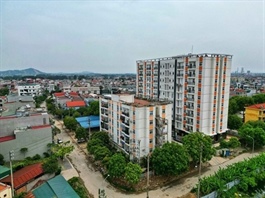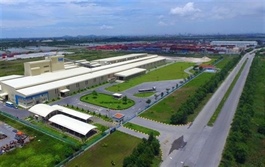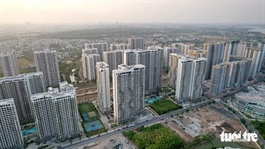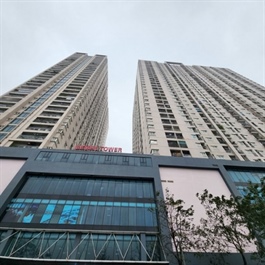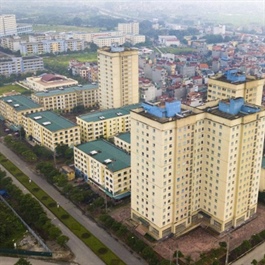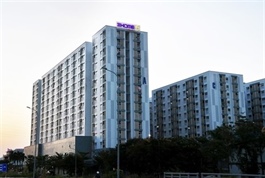Business concerns apparent on land law
Business concerns apparent on land law
The business community is still unclear about draft decrees related to land prices and implementation of the new Land Law.

At a meeting in mid-April, Deputy Prime Minister Tran Hong Ha asked the Ministry of Natural Resources and Environment to continue clarifying issues with different opinions on the scope, subjects, and implementation policies of the law, while speeding up the online processing of administrative procedures related to land.
The ministry is completing two drafts to be submitted to the government for approval, one directly related to land prices, and the other on implementing the 2024 Land Law. The prime minister has directed ministries and sectors to build documents guiding the implementation of the law to make sure that it can take effect in July this year instead of January 2025 as previously planned.
Pham Tan Cong, chairman of the Vietnam Chamber of Commerce and Industry, said, “These drafts are two of the most important decrees impacting the investment and trade of businesses. Thus, the drafting board has organised conferences to collect opinions with the expectation to draft a complete decree, which creates feasible conditions for businesses during implementation.”
During this process, many issues in the draft decrees are still being discussed and corrections are being proposed.
“We cannot follow the entire content of these draft decrees due to too much information. Regardless, the draft decrees are still being updated,” said Nguyen Quoc Hiep, chairman of the Vietnam Association of Construction Contractors.
“In the draft decree on land pricing, our members say more than 20 pending pieces of content need to be clarified or revised. For example, in the article relating to the withdrawal of land, there are two purposes for withdrawing land: ensuring national security and developing the socioeconomy. The problem is that the draft decree has specific guides to recover land for national security purposes, but no specific explanation for taking back land to serve socioeconomic development.”
Hiep said that the current instructions on bidding and selecting investors to implement projects using land were “sketchy” and many localities were confused on how investors were chosen for projects.
“In particular, before bidding to select investors for projects, the land price had not been determined. As a result, when the bidding is finished or even when winners implement land clearance, the land prices are determined at a high level, which can be in excess of investors’ capacity. Thus, they are forced to give up the projects. We need a more detailed guide on this content,” Hiep said.
Besides this, businesses are also concerned with contradictions between the Land Law and draft decree detailing the implementation of certain provisions.
“Article 218.2 of the new Land Law stipulates that cases of land usage combined with commerce and services must prepare a land use plan and submit it to the competent authority for approval. However, Article 157 of the draft decree stipulates that some cases of multipurpose land use do not need to prepare a combined land use plan and simultaneously do not have to carry out land registration. Therefore, we are concerned whether the draft is stipulating exceptions to the cases in Article 218 in the new law,” said Trinh Minh Hang of the Legal Division at Honda Vietnam.
The company expects the draft decree will add detailed instructions when using multipurpose land so that businesses do not face any barriers during implementation, Hang added.
According to the Office of the National Assembly, the new 16-chapter Land Law boasts regulations on determining land prices according to market principles, and inspection and supervision of the central government and localities’ people’s councils in the formulation of land price lists.







